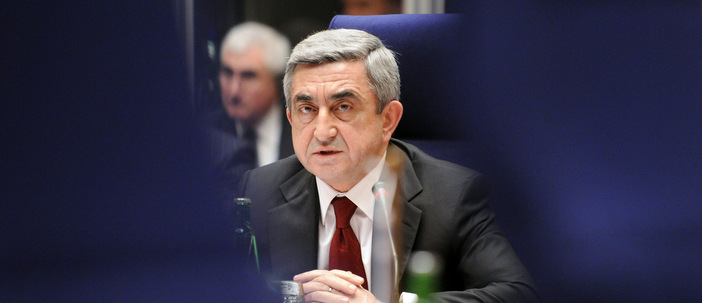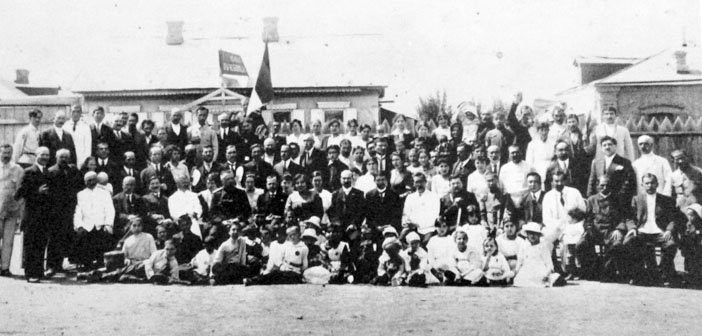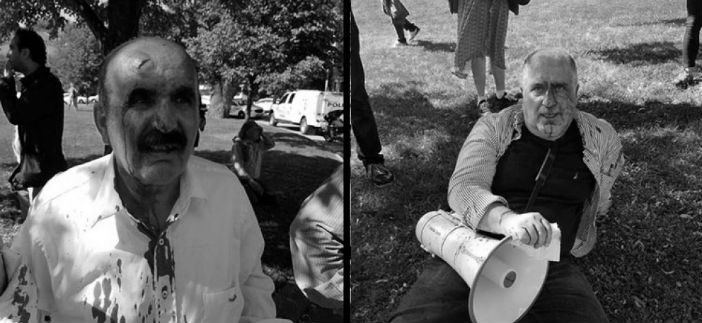President Erdoğan recently announced that on April 24, the date commemorated each year as the beginning of the Armenian Genocide, a ceremony for the anniversary of the Battle of Gallipoli would be held; and alongside other world leaders, invited the President of the Republic of Armenia Serzh Sargsyan to the ceremony.
Sargsyan has responded to Erdoğan’s invitation in a letter in which he underlines that ‘peace and friendship first and foremost shall be based on the courage to confront the past’; and reminding that he had previously invited Erdoğan to the Commemoration Ceremony for the 100th Anniversary of the Genocide, adds that “It is not common practice for us to be hosted at the invitee’s, without receiving a response to our invitation.”
Below is the official English translation of Sargsyan’s response in full as published on the web site of the President of the Republic of Armenia
Honorable Mr. President,
I have received your invitation to participate in the commemoration ceremonies marking the 100th anniversary of the Battle of Gallipoli.
Indeed, World War I is one of the terrific chapters of history of humanity, claiming millions of innocent lives and aborting destinies.
An artilleryman of Armenian descent, Captain Sargis Torosyan also joined the troops of the Ottoman Empire in the Battle of Gallipoli. He was an officer, dedicated to the defense and security of the Empire, who was decorated with Ottoman military awards for his loyalty and heroism. Nevertheless, in that same year, marking the culmination of mass killing and forced deportation, preliminary planned and perpetrated by the Ottoman Empire, the wave of massacres did not bypass even Sargis Torosyan. His parents, brutally killed, and sister, perished in the Syrian Desert, were among 1.5 million Armenian victims of Genocide.
It was as a result of this very unprecedented massacre that Raphael Lemkin coined the term “genocide”. And impunity thereof paved a path to Holocaust and genocides in Rwanda, Cambodia and Darfur.
According to you, the Battle of Gallipoli offers a unique example for both Turkey and the World as an illustration of friendship born out of war, and the battlefield, reminding of the bitter heritage of war, stands as an eternal monument to peace and friendship. Leaving aside the well-known meaning of the Battle of Gallipoli or the questionable role of Turkey in World War I and World War II, one shall recall that peace and friendship first and foremost shall be based on the courage to confront the past, on the historical justice, as well as on recognition of full-fledged universal memory but never on selective approach.
Alas, Turkey continues its traditional policy of denialism. Year by year, “improving” its tools of history distortion, this time Turkey marks the anniversary of the Battle of Gallipoli on April 24 for the first time, while it began on March 18, 1915 and lasted till late January, 1916. Furthermore, allies’ land campaign- Gallipoli land battle- took place on April 25, 1915. What purpose does it serve if not a simple-minded goal to distract the attention of the international community from the events dedicated to the centennial of the Armenian Genocide? Whereas, before organizing a commemorative event, Turkey has much more important obligation towards its own people and the entire humanity, namely the recognition and condemnation of the Armenian Genocide.
Hence, when calling for international peace I would advise you not to forget sending a message to the world to recognize the Armenian Genocide, thus paying a tribute to the memory of 1.5 million innocent victims.
Each of us is obliged to pass on an authentic and genuine history to the next generations, thereby preventing the repetition of such crimes and preparing the ground for rapprochement and further cooperation of nations, especially neighboring ones.
P.S. Your Excellency, a few months ago I invited you to join us in commemoration of memory of the innocent victims of the Armenian Genocide in Yerevan on the 24th of April. It is not a common practice for us to be hosted at the invitee’s, without receiving a response to our invitation.
For the Turkish translation of the letter as translated and published by Agos, click here.
For the official Armenian text of the letter, click here.
For the official Russian translation of the letter, click here.





